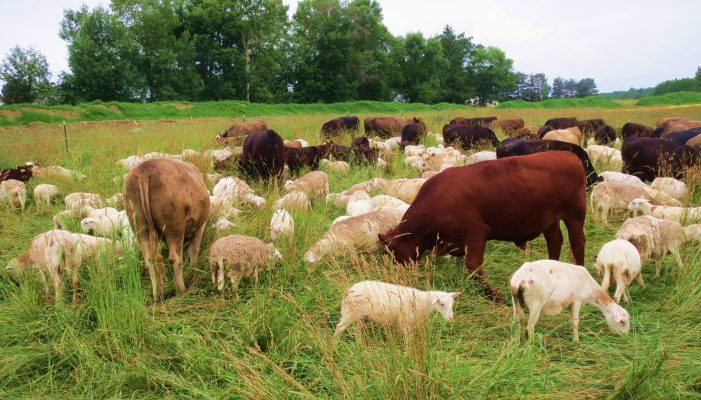Carole Knight
-

By Carole Knight Bulloch County CEA The process of baling hay has come a long way since the late 1800’s when Cyrus McCormick’s reaper design used a knotter to bundle and bind hay. The technology has improved but the goal has remained the same – safely store hay to feed to livestock at a later…
-
By Jeremy Kichler Colquitt County CEC The combination of humidity and moisture this spring has been a great challenge to many hay producers across the state.. The single most important “producer-controlled” factor influencing hay quality is the stage of maturity at harvest. However, unfavorable weather conditions in the Southeast can make it difficult to harvest…
Posted in: Hay -

By Will Lovett and Cole Madray (UGA Intern) Bacon County CEC Anyone that has grazed cattle and horses knows how quickly they can clear a field of grass and legumes, but will not touch anything they may not want to eat. The grasses, forbs and legumes ignored by some grazing animals are weeds that…
-

By Lucy Ray Morgan County CEC Mold in livestock hay can be a significant problem, particularly in years where we have had a lot of moisture and humidity during harvest. The summer of 2016 was not overrun with moisture, however, when we have a shortage of hay, many producers are forced to feed less than…
Posted in: Hay -
By Jeremy Kichler Colquitt County CEC This time of year, County Agents get questions about establishing warm season perennial forages from seed. Forage establishment can be expensive, especially if you have to do it twice. Let’s discuss some things that ensure successful perennial forage establishment on the first try. Fertility. Soil sampling should be done…
-
The UGA Forage Team recently hosted the UGA GrassMasters series for Northeast Georgia at the UGA Livestock Instructional Arena in Athens. This was the second such program hosted by the Forage Team as part of a partnership with the Natural Resource Conservation Service. The goal of the program is to provide a more intensive series…
-

By Adam Speir Madison County CEC I always remember being at basketball games growing up and hearing that a close game by two very good teams would be called a “barn burner.” With hay season just around the corner, farmers have the very real risk of dealing with a “barn burner” of a different, more…
Posted in: Hay -
Should I start grazing my permanent pastures now? Care needs to be taken to avoid turning out too early. Grazing fescue before it has at least a good amount of growth (8”) will cost you 25-50% or more of your spring yield potential. Hammering bermudagrass just as it is waking up will also cost you 20-40%+…
Posted in: Uncategorized